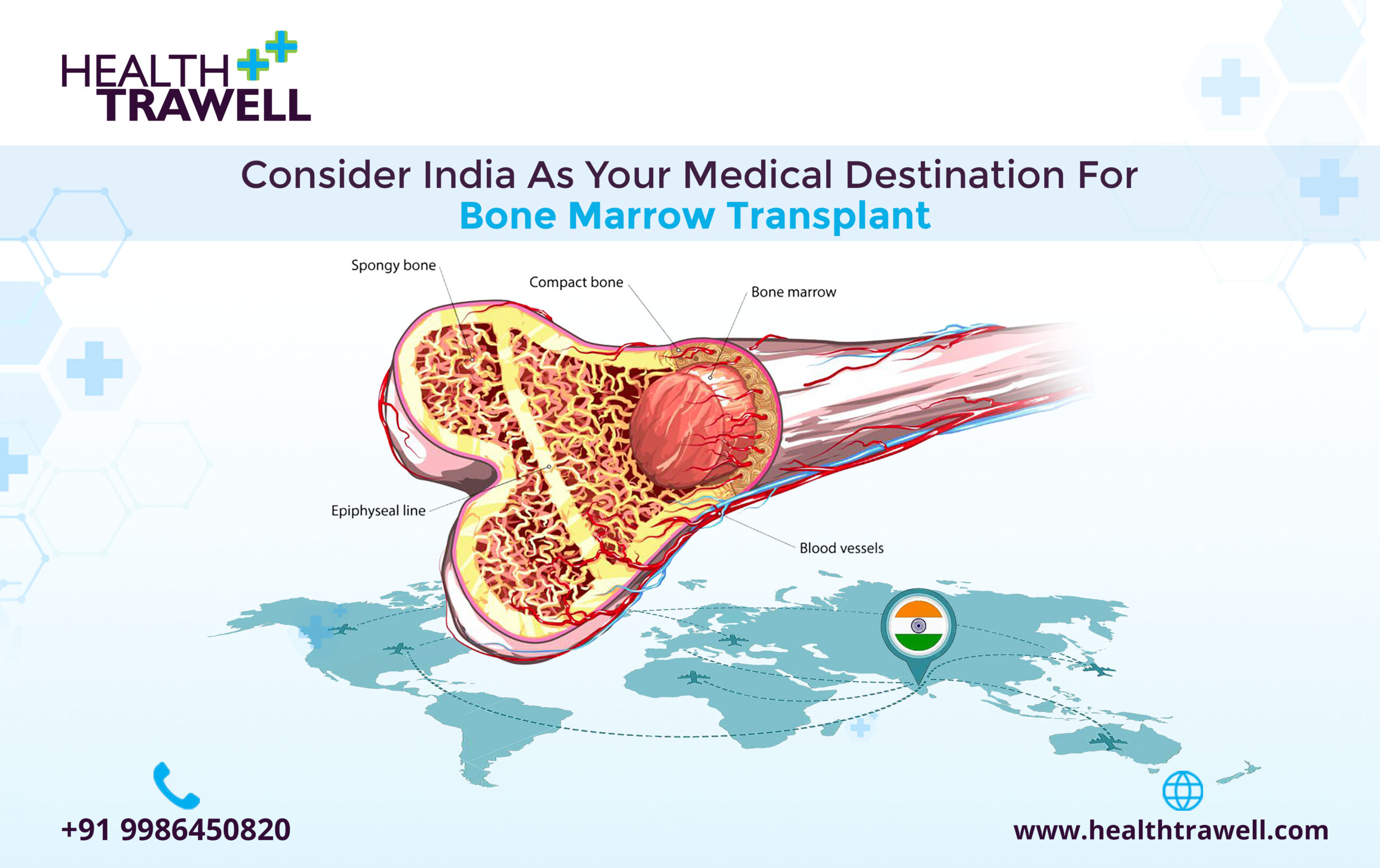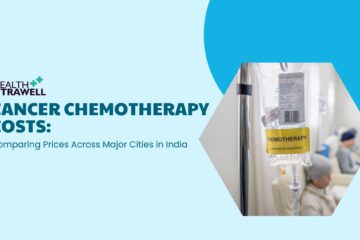Consider India as Your Medical Destination for Bone Marrow Transplant

As Joyce Meyer believes that the greatest gift that one can give his family & the entire world is he being healthy!
Overview of Bone Marrow Transplant
Bone marrow transplant (BMT), also known as hematopoietic stem cell transplant (HSCT), is a medical procedure that involves replacing damaged or diseased bone marrow with healthy bone marrow stem cells. The transplant aims to replenish the patient’s blood-forming stem cells and immune system, which may have been damaged due to chemotherapy or radiation therapy for cancer, certain genetic disorders, or other medical conditions.
Types of Bone Marrow Transplant
There are three types of bone marrow transplants, depending on where the healthy stem cells come from:
- Autologous bone marrow transplant: This type of transplant involves using the patient’s own stem cells, which are collected before the patient undergoes high-dose chemotherapy or radiation therapy. These cells then are frozen & stored till they’re used in the transplant.
- Allogeneic bone marrow transplant: This type of transplant involves using stem cells from a donor, who may be a sibling, unrelated donor, or cord blood donor. The donor’s stem cells must match the patient’s tissue type as closely as possible to reduce the risk of rejection.
- Syngeneic bone marrow transplant: This type of transplant involves using stem cells from an identical twin.
Why Is Bone Marrow Transplant Done?
BMT is usually done to treat conditions that affect the bone marrow and blood cells, including:
- Leukaemia, lymphoma, and other types of cancer affecting the bone marrow and blood cells.
- Aplastic anaemia, a condition in which the bone marrow does not produce enough blood cells.
- Inherited disorders affecting the production or function of blood cells, such as sickle cell anaemia, thalassemia, and severe combined immunodeficiency (SCID).
- Autoimmune diseases, like scleroderma, multiple sclerosis, and lupus.
- Other conditions that may benefit from a BMT, such as some types of solid tumours, severe infections, and certain genetic disorders.
Risks Associated
BMT is a complex and risky procedure that carries several potential complications, including:
- Graft-versus-host disease (GVHD), a condition in which the donor’s immune cells attack the patient’s tissues, including the skin, liver, and digestive tract.
- Infection, which can occur due to the patient’s weakened immune system.
- Bleeding and anaemia, due to the destruction of blood cells during the high-dose chemotherapy or radiation therapy.
- Organ damage, such as liver and lung damage, due to the toxic effects of chemotherapy or radiation therapy.
- Infertility and other long-term side effects of the treatment.
How to Prepare for a Bone Marrow Transplant?
Before a bone marrow transplant, the patient will undergo several tests and evaluations to determine if they are a suitable candidate for the procedure. The patient may also need to take medications and receive treatments to prepare their body for the transplant, such as:
- Chemotherapy or radiation therapy to destroy the patient’s existing bone marrow and make room for the new stem cells.
- Immunosuppressive drugs to prevent rejection of the new stem cells and reduce the risk of GVHD.
- Antibiotics medicines & antifungal medications for preventing any infections.
- Nutritional support to ensure the patient is in good physical condition for the procedure.
What to Expect Before a Bone Marrow Transplant?
Before a BMT, the patient will undergo a series of tests and evaluations to determine if they are a suitable candidate for the procedure. These may include blood tests, imaging scans, and a physical examination. The patient will also meet with the transplant team, which may include a haematologist, oncologist, transplant coordinator, and other healthcare professionals. The patient will need to prepare for the transplant by following a specific diet, taking medications, and avoiding certain activities. They may also need to receive chemotherapy or radiation therapy to destroy their existing bone marrow and make room for the new stem cells. During this time, the patient may experience side effects from the treatment, such as fatigue, nausea, hair loss, and mouth sores. They will need to be closely monitored by their healthcare team to ensure they are in good physical condition for the transplant.
What to Expect During a Bone Marrow Transplant?
During the bone marrow transplant procedure, the patient will receive the new stem cells through an IV infusion, similar to a blood transfusion. The transplant process usually takes several hours and may require multiple infusions over several days. The patient will need to stay in the hospital for several weeks after the transplant to allow the new stem cells to engraft and begin producing new blood cells. During this time, they will be closely monitored for signs of infection, GVHD, and other complications. The patient may experience side effects during the transplant process, such as fever, chills, nausea, vomiting, and fatigue. They may also require blood transfusions, medications, and other treatments to manage these symptoms.
What to Expect After a Bone Marrow Transplant?
After the bone marrow transplant, the patient will continue to receive close medical monitoring to ensure their body is accepting the new stem cells and producing new blood cells. They will need to stay in the hospital for several weeks and may require additional treatments and medications to manage any side effects or complications. During this time, the patient will also need to follow a strict regimen of medications, diet, and activity restrictions to support their recovery. They may need to avoid crowds, wear a mask, and practice good hygiene to reduce the risk of infection. Over time, the patient’s immune system will gradually recover, and they will be able to resume their normal activities. However, it may take several months or even years for the patient to fully recover from the transplant process, and they will need to continue to receive regular medical monitoring and follow-up care.
Come to India for Bone Marrow Transplant with Health Trawell as Your Medical Escort Here!
You can come to India for bone marrow transplant; the country is a medical hub offering first-rate medical treatments. You can associate with Health Trawell to get their assistance for a comfortable stay here in India while getting the best treatment in this regard.



